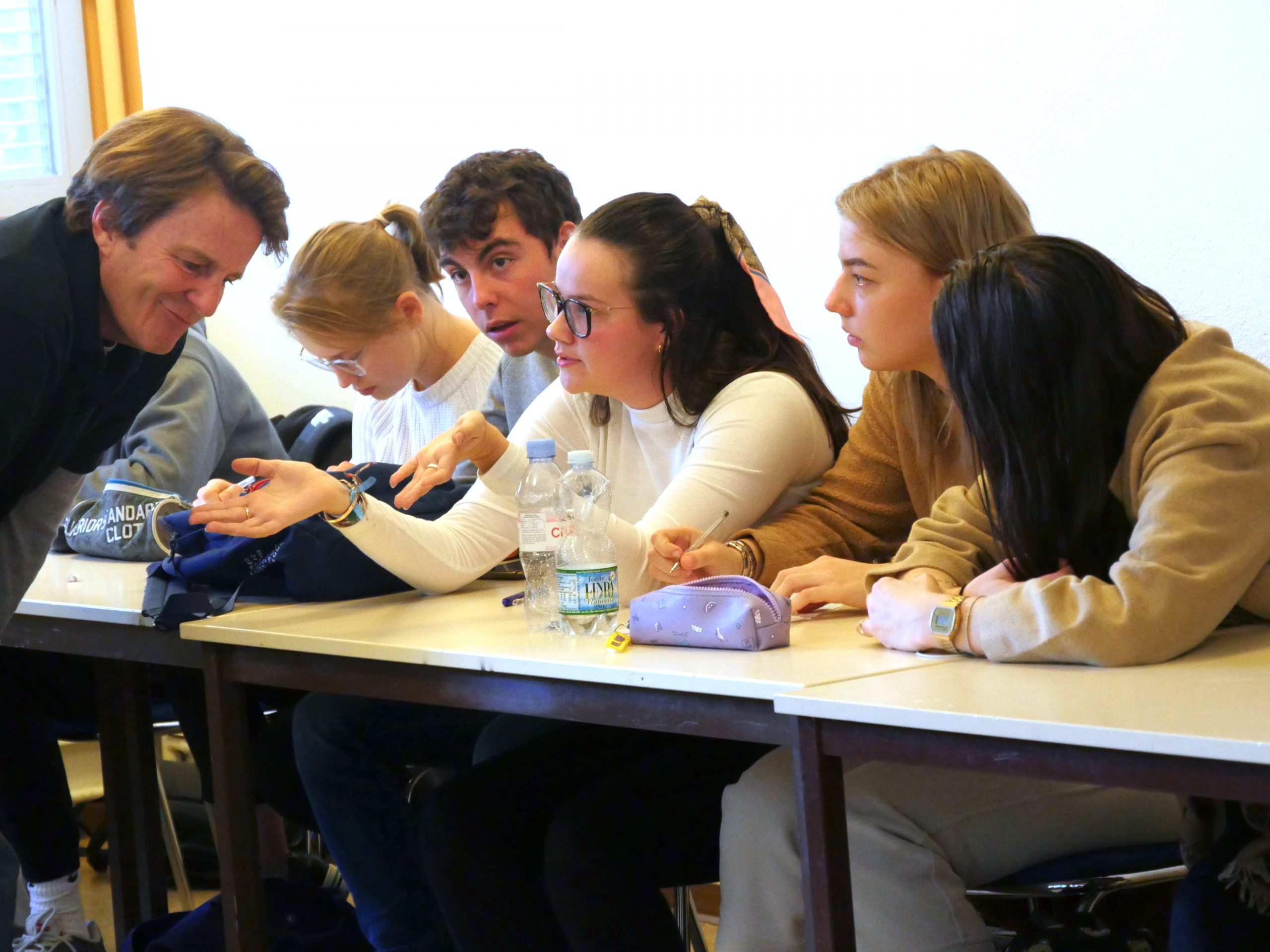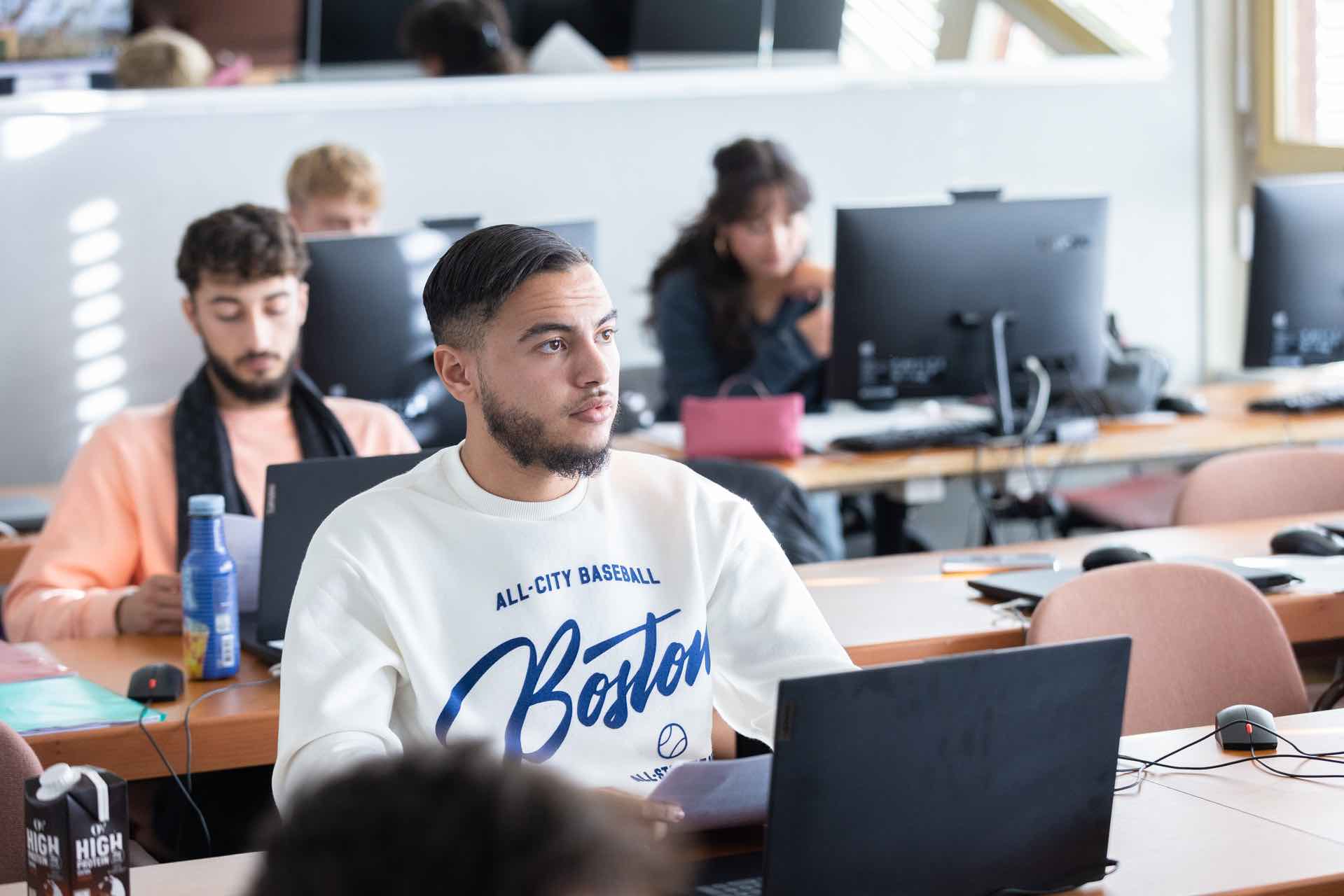An article in Global Focus* by Professors Arun Pereira of the Indian School of Business in Hyderabad, India and John Mullins of the London Business School caught my attention. Entitled "The Seven Vectors of Learning", the article reviews the main factors that promote learning in business schools.
Seven Drivers of Learning

The reason I chose to summarize and comment on this article here is because I believe these learning factors are broadly applicable to other types of education, both at the high school and university level, or even in adult continuing education.
“People learn best when they are actively and cooperatively engaged in their learning.”
As far back as 1987, Chickering and Gamson said, “Learning is not a spectator sport.
In fact, this active approach to teaching, which requires learners to collaborate, is much older and has some of its roots in Switzerland. The French pedagogue Célestin Freinet (1896-1966), who made great contributions in this area, was not starting from scratch, as the following quote translated from the French version of Wikipedia (article “Pédagogie Freinet”) shows: Freinet spoke of ‘Freinet techniques’, not of a method, because techniques evolve.
Freinet described his approach in a book titled Les techniques Freinet de l’école moderne (1964). This pedagogy is part of the New Education movement that dates back to 1899, whose various currents (Ferrière, Édouard Claparède, Ovide Decroly, Roger Cousinet, etc.) developed exchanges via the International League for New Education thanks to the Swiss pedagogue Adolphe Ferrière from 1921 onwards.
“People learn better when they are given the opportunity to think.”
Real progress is only achieved when learners are given the opportunity to reflect on what they have learned. For example, when a student is able to complete an internship, the impact of the internship will be enhanced by having the student write an internship report.
“People learn best when instruction is built on their prior knowledge and experiences.”
Connecting learning to prior experience and knowledge in this way brings into play an emotional factor that plays an important role in learning. The teacher can take advantage of the diversity he or she encounters in the classroom: students of different nationalities in a French baccalaureate class, participants with different professional backgrounds in a continuing education course, etc.
“People learn best when they are able to organize information into blocks.”
This point seems crucial to me, because memorization is an essential element of learning, which has sometimes been neglected in recent decades, especially in public school systems.
“People learn best when they are motivated.”
This statement may seem like a truism. However, it seems to me to be central because, as a well-known French proverb says, you can’t water a donkey that isn’t thirsty. I believe that motivation can be created by the relevance of the content to the learners (I agree that this is not always self-evident in school programs), by the implementation of emotional factors and by an interactive approach to the transmission of knowledge and skills.
The last two vectors we have yet to consider also play a big role in my view.
“People learn better when they receive feedback” and “People learn better when the objectives of the training are clear”.
These two points seem to me to be closely related. Indeed, how can we evaluate the progress of a pupil, a student or an adult in training if the result to be achieved is not clearly and completely defined? These questions have been on the minds of both educational authorities and business school accrediting bodies for a long time in recent years. A detailed examination of these two points, however, would be beyond the scope of this blog and would be worth addressing at another time.
In conclusion, I thought the learning vectors identified in this blog might be a useful reminder to anyone charged with teaching.
Global Focus is a publication of the European Foundation for Management Development (EFMD), a foundation that brings together, despite its name, companies and higher education institutes from around the world.
Other posts

Discover the Story of Mina, the AI of Lemania

Climate Change: Why We Shouldn’t Be Discouraged Despite Trump’s Return to Power

We are not condemned to choose between happiness and ecology

When the vocational training is just a first step

Writing by hand helps you remember, or the proper use of tablets

Ovomaltine, Rolex, Nescafé, Swatch or Nagra. What do they all have in common?
